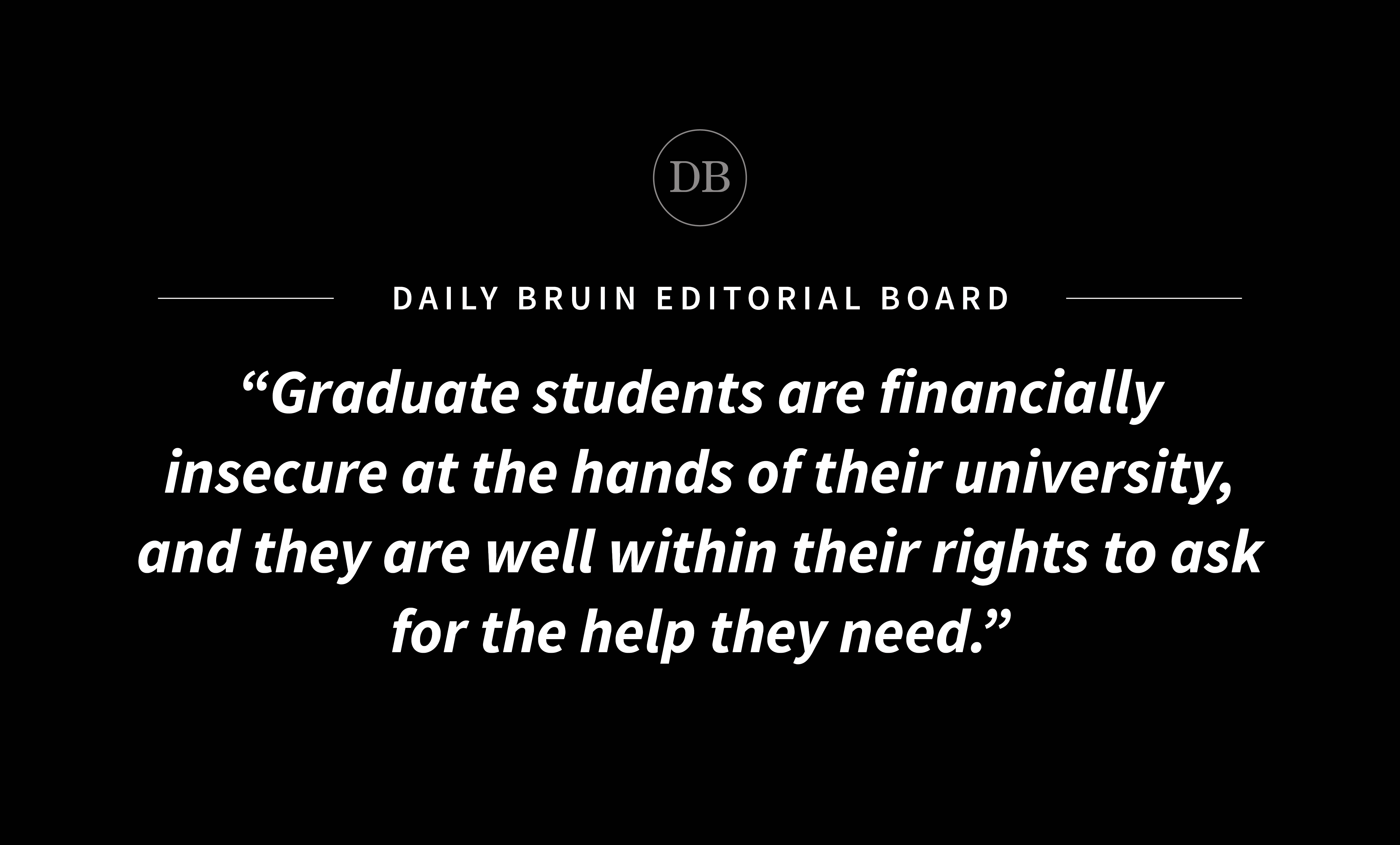Editorial: Napolitano’s response to UCSC strikes ignores responsibility UC has to its students

By Editorial Board
Feb. 19, 2020 10:33 p.m.
They say knowledge is power.
But for almost 59,000 University of California graduate students, knowledge has barely landed them above the poverty line.
On Feb. 12, graduate students at UC Santa Cruz took to the streets in a protest, which resulted in 17 arrests after protesters refused police orders to vacate the streets. The graduate students – who make just about $20,000 a year as teaching assistants – were protesting low wages and the lack of affordable housing provided by the UC.
Within days, UC President Janet Napolitano condemned protesters for violating their union contract.
But Napolitano quickly moved on to other orders of business – namely, a clear announcement that the UC would not engage in conversation, much less renegotiation, with graduate students telling the University they can’t afford their housing costs.
The UC has a long history of ignoring the effects of its bargaining tactics on others’ livelihoods, whether it be the American Federation of State, County and Municipal Employees Local 3299 or the University Council-American Federation of Teachers. But this level of disregard for its own students is indefensible, and the UC’s flippant response to valid concerns will only increase hostilities between students and the institution meant to provide for them. Blocking the streets may well deserve arrest under law, but it by no means warrants ending a conversation – especially one administrators won’t allow to even begin.
As Napolitano’s term comes to a close, students may have expected parting words and concise policy decisions.
Instead, they’ve been left with borderline threats and unjust ultimatums.
In a letter to students and faculty, the UC president said holding grades “hostage” and refusing to teach classes during the protest was “the wrong way to go.” The letter also referenced potential consequences for those involved in the protest, including the threat of job termination.
And though the University seems intent on maintaining current provisions for graduate students, members of the UC community are rightfully not so comfortable. Graduate students at UCLA protested in solidarity with Santa Cruz students, while UCSC faculty also marched with protesters. The Executive Board of the Council of UC Faculty Associations itself publicly criticized Napolitano’s response.
No matter how much the UC administration attempts to frame these protesters as irresponsible, this is only a small part of an ongoing plea for affordable housing and livable wages.
And considering the financial circumstances, it’s a plea the UC has a moral obligation to answer – regardless of contracts or union agreements. The median monthly rent in coastal Santa Cruz is over $3,000. A graduate student salary can barely cover seven months of housing at that price – much less an entire academic year.
The UC could make any number of helpful plays here, but instead of opening negotiations, it’s treating students like bargaining chips.
That being said, graduate students are hired under contract, and some – the UC included – will inevitably argue that they have responsibilities to uphold under that deal. Teaching assistants directly impact thousands of students, and their absence is equally unfair to those undergraduates’ educations. But blaming TAs for late midterm grades doesn’t get at the root of a problem the UC created.
Graduate students are financially insecure at the hands of their university, and they are well within their rights to ask for the help they need.
Maybe Napolitano’s successor will understand that.


